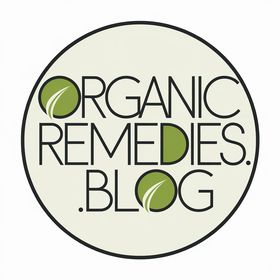The Magic Combo That Helped Me Beat My Fever Fast
When you find yourself battling a fever, it can feel overwhelming. However, understanding the key elements of recovery—like hydration, herbal remedies, and sufficient rest—can make all the difference. Each component plays a crucial role in aiding your body’s healing process. Curious about the specific strategies that can speed up your recovery and make you feel better faster? Let’s explore the effective methods that truly work.
Understanding Fever and Its Symptoms
When you experience a fever, it’s your body’s way of signaling that something isn’t right, often indicating an underlying infection or illness. Common symptoms include chills, sweating, muscle aches, and fatigue.
Your body’s temperature rises to fight off pathogens, but a fever can be uncomfortable. Recognizing when to seek a fever home treatment can enhance your comfort. You might consider applying a cool compress to your forehead or taking over-the-counter medications like ibuprofen or acetaminophen to lower your temperature. Additionally, you may benefit from exploring natural fever remedies that can help provide relief.
Rest is crucial; your body needs energy to recover. Avoid heavy blankets, as this can trap heat and raise your temperature further.
Ultimately, understanding your symptoms empowers you to manage fever effectively while waiting for the underlying issue to resolve.
The Power of Hydration
Staying hydrated is essential for your body’s recovery during a fever, as fluids help regulate temperature and support vital functions. When you’re running a fever, you lose fluids more rapidly through sweat and elevated body temperature.
Drinking water, herbal teas, or electrolyte-rich drinks replenishes lost fluids, preventing dehydration, which can exacerbate symptoms. Aim for at least eight 8-ounce glasses a day; more if you’re sweating heavily.
Remember, caffeine and alcohol can worsen dehydration, so steer clear during this time. Consistent hydration not only aids in cooling your body down but also supports immune function, allowing your body to fight off the illness more effectively. Additionally, incorporating natural remedies like honey and ginger can further enhance your recovery by alleviating cold symptoms.
Herbal Remedies That Work
Hydration plays a key role in fever recovery, but incorporating herbal remedies can further enhance your healing process.
Ginger is a fantastic choice; it boasts anti-inflammatory properties that may help reduce fever. You can sip ginger tea, which not only hydrates but also aids digestion.
Another powerful herb is elderflower, known for its ability to promote sweating, a natural way your body regulates temperature.
Peppermint also works wonders; its menthol content creates a cooling effect and can alleviate discomfort.
Lastly, turmeric contains curcumin, praised for its anti-inflammatory benefits. Mixing it into warm milk or tea can soothe you during recovery.
These herbal remedies, alongside hydration, can support your body’s healing journey effectively. Scientific evidence supports the use of these herbs, particularly ginger and turmeric, for their beneficial effects during flu season.
The Role of Rest and Sleep
Rest and sleep are crucial components in managing a fever, as your body needs time to recover and combat illness effectively. When you’re fighting a fever, your immune system is working overtime, and adequate rest helps optimize that process.
Here are some key points to consider:
-
Boosts Immune Function: Sleep strengthens your immune response, helping you ward off infections.
-
Reduces Inflammation: Rest lowers inflammation levels, allowing your body to heal faster.
-
Promotes Energy Restoration: Sleep replenishes your energy reserves, critical when you’re feeling weak.
-
Enhances Recovery: Quality rest leads to better overall recovery, shortening illness duration.
When to Seek Professional Help
Knowing when to seek professional help during a fever is essential for ensuring your safety and well-being. If your fever rises above 103°F (39.4°C) or lasts longer than three days, it’s time to contact a healthcare provider.
Additionally, if you experience severe symptoms like difficulty breathing, severe headache, stiff neck, or persistent vomiting, don’t hesitate to seek medical attention. Young children, infants, or individuals with compromised immune systems should be evaluated sooner, even with lower fevers.
Remember, your body’s signals are crucial; if you feel unusually lethargic or disoriented, it’s better to err on the side of caution. Early intervention can prevent complications and lead to more effective treatment.
Always trust your instincts—your health is worth it.





